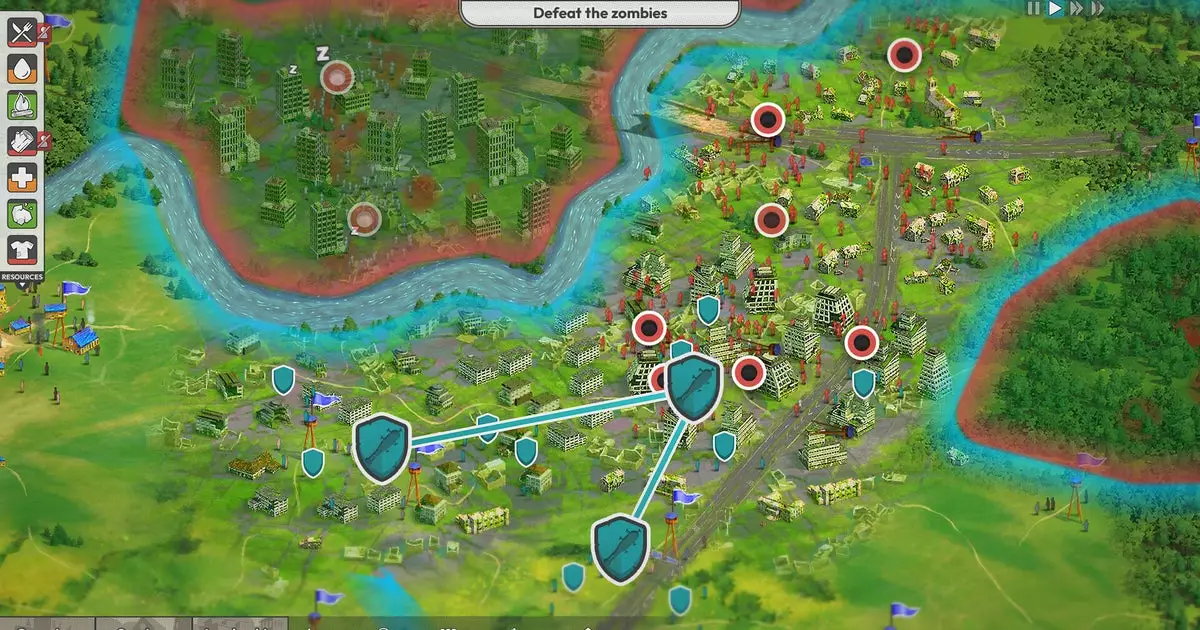In the ever-evolving landscape of mobile gaming, Ndemic Creations has made a significant mark with its hit title, Plague Inc. This strategy simulation game, which allows players to cultivate a disease and unleash it upon the world, resonated particularly well with audiences during the onset of the COVID-19 pandemic. Fast forward to today, and the studio is venturing into new territory with After Inc: Revival. This title transitions from the morbid themes of pandemic-induced destruction to a more optimistic narrative centered on rebuilding in a post-apocalyptic world overrun by zombies.
After Inc: Revival transports players into a beautifully rendered, post-apocalyptic United Kingdom, where they are tasked with revitalizing society from its remnants. In contrast to the game’s predecessor, the objective here is not to sow chaos and destruction but rather to foster growth and community. This transformation in gameplay is not without its challenges; players must confront the constant threat posed by lurking zombies – a metaphor for the persistent anxieties in the real world.
Rather than merely surviving, players will rebuild settlements, develop infrastructures such as housing and farms, and, perhaps most intriguingly, grapple with ethical dilemmas. Harken back to the question of whether children are an “affordable luxury” or whether pets could serve as a food source; these are decisions that could shape the societal dynamics and moral compass of the emerging community. Such dilemmas evoke reflections on real-life choices and how they might manifest in times of crisis.
Central to the gameplay experience is the introduction of ten unique leaders, each imbued with distinct abilities that allow for varied approaches to governance and reconstruction. This aspect of leadership resonates deeply with contemporary themes of political governance, questioning whether a democratic framework is more effective in times of calamity than a more authoritative approach. The inclusion of such mechanics not only enhances replayability but also elicits discussions about governance models in the face of crisis—a timely inquiry as many societies are still grappling with the aftereffects of the pandemic.
The game’s narrative algorithms further enrich the player’s experience, allowing for a unique storytelling arc that adapts in response to player decisions. It’s this intricate weaving of choice and consequence that has the potential to produce a more immersive narrative experience, drawing players into the complexities of their decision-making in a world that is simultaneously fantastical and eerily reflective of current societal challenges.
Visually, After Inc: Revival is a feast for the eyes, with art direction that seems inspired by classic titles like King Of Dragon Pass. The aesthetic serves to soften the harsh realities of a world plagued by zombies, presenting an inviting and idyllic scenery dotted with cozy rooftops and sprawling fields. Nevertheless, beneath this charming veneer lies a narrative that dares to explore deeper existential questions and societal reflections on recent global events.
Ndemic’s cheeky assertion that the game is not rooted in real-world scenarios momentarily dispels its connection to the pandemic experience, yet it is impossible to ignore the metaphoric undertones. This juxtaposition brings forth a poignant commentary on the societal desire to return to a state of normality, especially when juxtaposed against the backdrop of an ongoing global health crisis.
With the game set for early access release in 2025, there are expectations for future content that promises to expand upon the foundation laid by the initial offering. Players can anticipate more settlement leaders, diverse narrative arcs, and insights into the fictional Necroa virus that underpins the zombie adventure. Such enhancements will likely deepen the engagement with the game as well as its commentary on resilience in the face of adversity.
Ultimately, After Inc: Revival appears to be a thoughtful exploration of humanity’s response to catastrophe, inviting players to reflect not only on how societies rebuild but also on the implications of their choices in shaping the future. As we navigate through our own post-pandemic reality, this game could serve as a mirror, forcing us to confront the complexities of our newfound normal. Will we be governed by collective hope, or will we succumb to the isolation of survival instincts? The answers lie in both the game and our real-world engagements moving forward.

